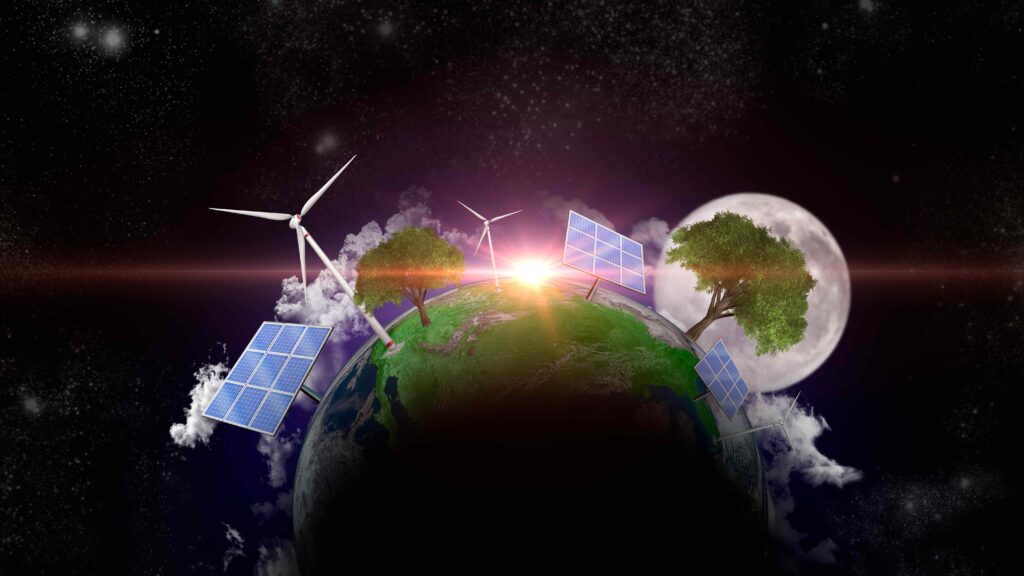
Features
Cleantech Canada
Sustainability
Technology
Power Struggle: Time for an energy reboot
March 6, 2023 By Maddi Badiola
 (Photo: Icruci/Adobe Stock)
(Photo: Icruci/Adobe Stock) We are living in the era of technology, however, it may be coming to an end. One lesson to be learned is that the marketplace for online communications, entertainment, and news media has never been and doubtfully will ever be stable, and the most powerful players can be dethroned, power is (luckily) limited.
Russia’s invasion of Ukraine was the most important happening of the Year 2022. Nobody – except maybe the government intelligence departments – would have ever imagined that this could happen. Millions of Ukrainians were crossing the borders and running to safety, fighting and surviving with no food, heat, electricity and/or water. The rest of the world began to react to “the first truly global energy crisis, with impacts that will be felt for years to come” due to price volatility, supply shortages, security issues and economic uncertainty (International Energy Agency, IEA).
Nevertheless, the myriad consequences of an ongoing global energy reboot means there may be some positive developments, too.
The IEA defines energy security as the uninterrupted availability of energy sources at an affordable price. “What a joke!” many of you would say to this. The high energy bills for households have created the debate around turning on the heat or eating protein. Big companies have reduced their working loads to reduce energy costs, and not to mention that many small businesses have shut down because they are not being able to overcome increasing operational costs.
Putin’s threat to shut off Russia’s oil and gas pipelines is pushing another global rethink about energy security. Nevertheless, experts suggest that the crisis in Ukraine is not the main driver for the unprecedented increase in gas prices, but rather a result of a continuing trend to scale back production among oil producers (i.e., produce less at a lower cost to get high returns). This is mainly driven by the need of their power to run the world, or in any case the fear of losing it.
Energy security is about diversity in supply, to have the ability to substitute one supply easily and quickly for another. The inevitability of a growing shift away from hydrocarbon toward more sustainable energy sources is making the powerful people realize that their power might become limited.
How has all this has affected the RAS aquaculture industry? It seems obvious that the industry has been impacted for higher energy prices and the change of trade flows and supply shortages.
One of the particularities of RAS is the need for power 24 hours, over 365 days of the year and if the cost of such increases with no increase (or even decrease) on sales, the math is clear.
I come from a region (the Basque Country) where the average fish consumption is one of the world’s highest, 37.2 kilograms of fish per person, per year. However, in the last two years, this has been depleted to around 32. Families cannot afford to eat fish as the prices go up due to the need of producers to survive. So, yes, this situation has affected the RAS industry.
But, Charles Darwin, with his evolution theory results, said, “Weaknesses become virtue, failures are opportunities.” This situation will make the industry think twice about energy and power consumption. It must push companies toward renewable energy sources and total monitoring and efficiency of the systems.
High investments due to high-tech systems and feed costs have always been setbacks of the industry, but with time, we are seeing that all passes through energy. Existing RAS companies should rely on energy audits to increase their efficiencies and to build systems that look for renewable energies as its main (but not the only) energy supply. In the variety is the spice!
Fish is the most sustainable animal source protein food produced. In parallel, RAS is the most sustainable way of producing it. Should not these two statements be enough to focus on improving the efficiency and limiting the power of energy on RAS? I leave the answer for discussion in RASTECH 2023 in Orlando, FL, U.S.
Maddi Badiola, PhD, PM, is a RAS engineer and co-founder of HTH Full Spectrum (fullspectrumaquaculture.com; HTHaqua.com) in Basque Country, Spain. Her expertise include energy conservation, lifecycle assessments and RAS global sustainability assessments. Email her at mbadiolamillate@gmail.com.
Print this page